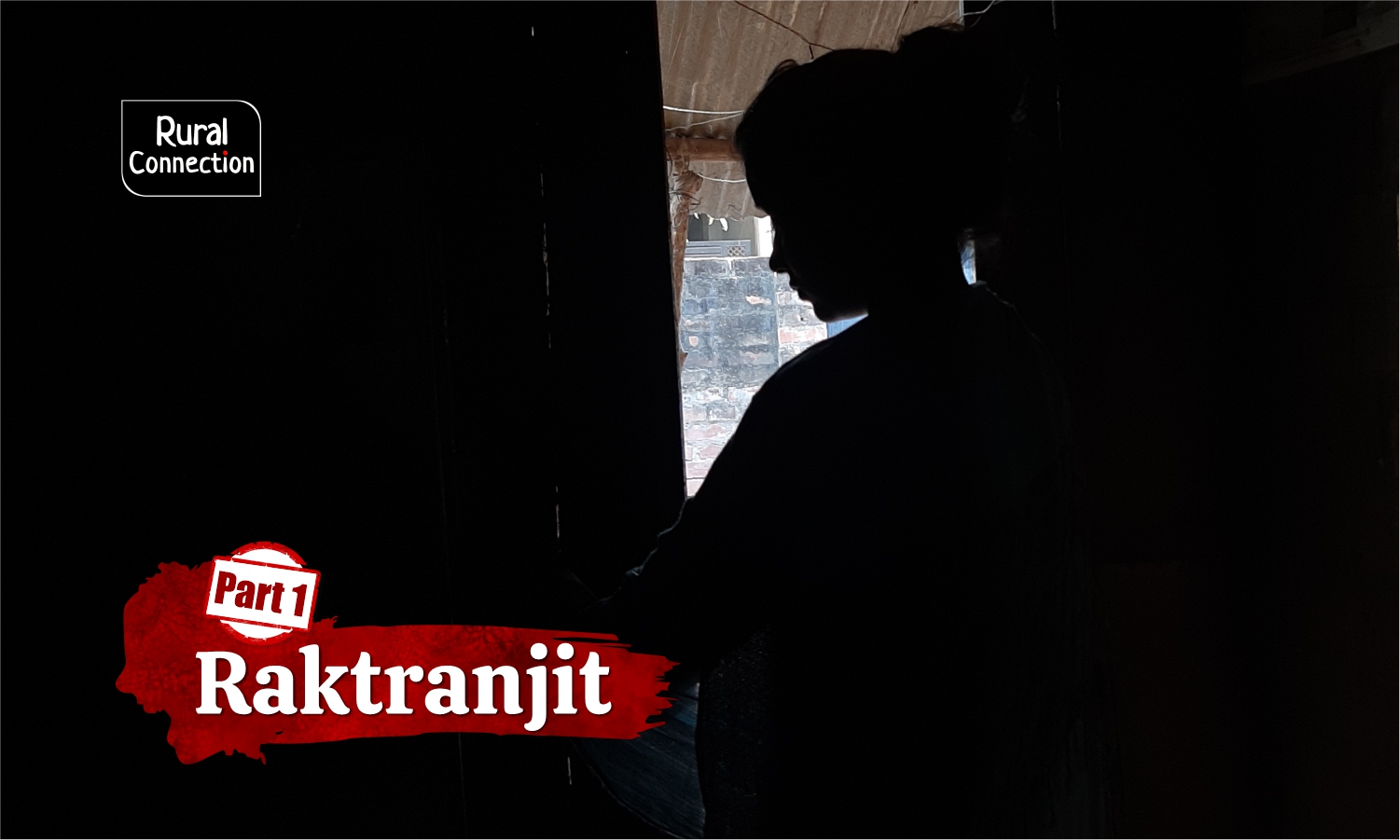While the Nirbhaya, Kathua, Mandsaur and many other rape cases grabbed headlines, rape is a reality that half of our population lives with every day. The fear of a rapist lurking in the fields, on the way to school, when they go to relieve themselves or even in their own homes is omnipresent for women and girls in rural India. Gaon Connection launched a campaign to highlight these cases – which failed to become headlines or hashtags – and in doing so, bring out the larger issues raised by so many individual cases. Join us in our campaign, Raktranjit – Bloodstains
Try to spend just one day with just one toilet break. Difficult, isn’t it? Yet, for women and girls in rural India, this is their daily existence. In villages without toilets, women generally wait for dark and then go together to secluded areas on the outskirts of the village to defecate.
But on April 8, 2018, Soni (name changed), had to answer the call of nature alone. And that was the night her world changed … forever. Sooraj, a 21-year-old youth of the same village, Baburdipur – in Sitapur district in Uttar Pradesh, about 50 kms from state capital Lucknow — saw the minor Soni alone and dragged her into the fields where he raped her.
“Ever since that day, I am scared of stepping out of my house. What if he attacks me again?” a fearful Soni asked. When she told her mother about what had happened, instead of supporting her and helping her get justice, her mother thrashed her.
“I was beaten up so badly that I could not leave the bed for a week,” she said. While Soni remains under virtual, self-imposed house arrest, the alleged rapist roams around freely. What about the law, the police? Nobody went to the police. The fear of social stigma has sealed the lips of her family and social pressure has ensured that the only person who suffers is Soni.
Sexual harassment and rape are a reality which stalk women and girls in our villages. Yet, the cries of our daughters, sisters, mothers remain unheard within the walls of the home, silenced by patriarchy, a false sense of family pride or social pressure.
While the rape survivor lives in fear, the rapist not only gets away without even a rap on the knuckles, but is emboldened by the lack of punishment and often becomes a repeat offender.
“Fearful of social stigma, the parents of the victim, instead of fighting for justice for their daughter, become the biggest conspirators in keeping the crime hidden. The girl hides in shame and as for the rapist, he roams around proudly, as if he has accomplished something huge. Not just that, he becomes an example for other boys who want to be like him. So, obviously, rapes will increase and children, being the most defenceless, would keep on being victimised,” explained Niboo Kali, Sitapur district chairperson of women’s organization Samakhya.
Agreeing with her, JP Chauhan, an advocate practicing in the Guwahati High Court, added: “Women in rural India become easy targets for rapists because their tormentors know that the fear of society will keep them quiet. Another reason the women refrain from complaining is that they do not have any hope of getting justice. In several cases, where the police may have been called in, the victim’s family themselves withdraw the case because the entire process has taken so much time that now their child’s prospects of marriage and a future are at stake.”
500% increase in crimes against women in last decade
The statistics speak for themselves. In the past ten years, the number of rapes where the victims were minors has gone up by 500% and the more alarming figure shows that in more than half the cases of sexual crimes, the victims were children.
The police, however, ascribe this increase to rising awareness and claim credit for registering more cases. “In the past too there were cases, but no one reported for fear of social stigma. But now more people are coming forward and the police are also registering all reports,” said Anand Kulkarni, ex Superintendent of Police, district Sitapur. While he claimed credit for free and fair registration of cases, he admitted that the criminal-legal process and legal pendency were areas of concern.
“We may register the report immediately, but the process of taking the statements of the victim and the accused, getting their medical examinations done, filing the charge sheet – all take time. In fact, going by my experience, if I were to give you an estimate, it generally takes more than a year for the case to come to the trial stage,” he admitted.
By the time you finished reading this report, one more child would have been raped in India.
Part 2: “Lovingly, I would call him bhaiyya, but he raped me whenever he got an opportunity”
Part 3: Post Nirbhaya rape case, the laws have changed, but has the mindset? No, it hasn’t
Part 4: “I live in dread — afraid of being alone even for a moment. I fear that I may be raped at any time”
Part 5: Smartphones, cheap data become accessories when it comes to sexual crimes against women
Part 6: “The real difference will be felt only when there is an increase in the number of convictions”
Part 7: “Making laws more stringent is inadequate. Prompt action is required to curb sexual violence”



















